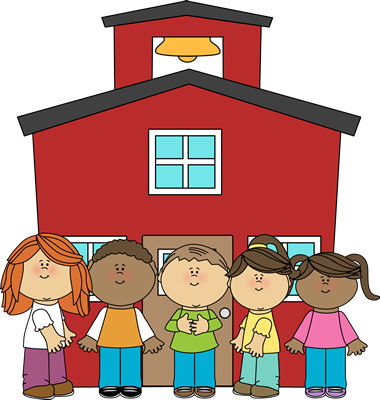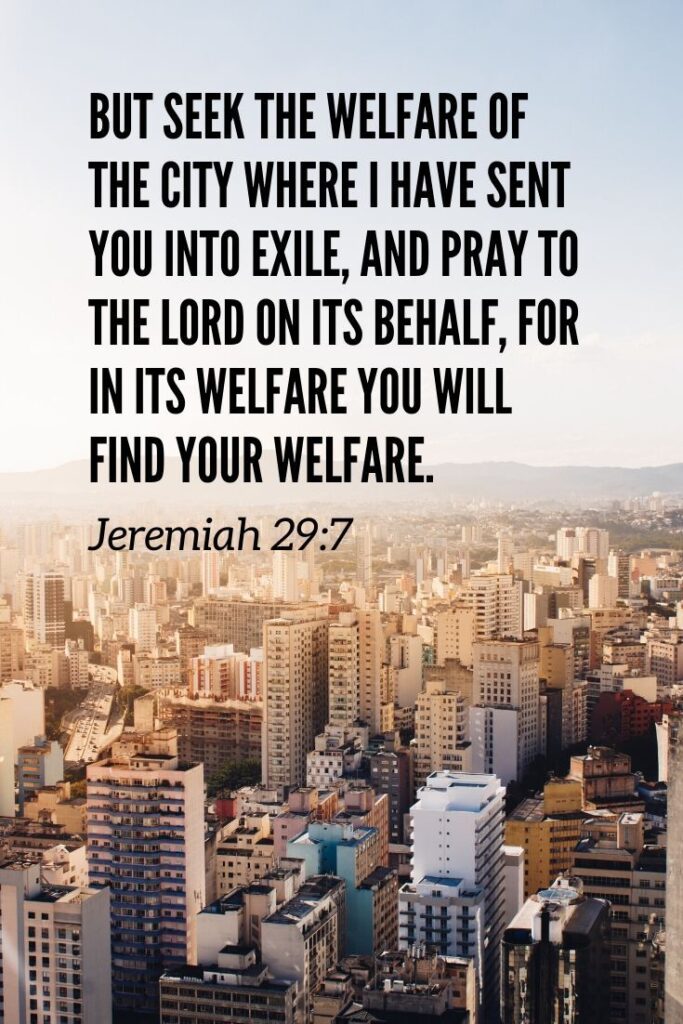I love to give to charity.
It doesn’t matter if I support the food bank by rounding up my purchase at the grocery store or buy a cart full of groceries to donate, it all feels good. I am happy to support the homeless shelter with by mailing a check or serving a meal. It makes the Christmas season more meaningful when I buy presents for an impoverished child and when I drop money in every kettle flagged by a bell ringer (my grandparents were Salvation Army officers—I can’t ignore a kettle).
And yet . . .
Donating to charity is akin to bailing a leaking boat—The boat may not sink (yet), but it’s still taking on water. When the bailer or the sailor become exhausted, frustrated, overwhelmed, the boat is doomed.

So why don’t we plug the leaks that cause people to need charity in the first place?
- Because the leaks are complex and complicated.
- Because that requires taking the boat out of the water to reexamine and repair.
- Because repairs are costly—both in time and money.
- Because the people with the power tools are not the people in the boat.
We live in a society that reinforces poverty. You’ve likely heard of systemic racism (and even more likely heard people explode over the term). But systemic issues—issues that are part of the way life works in our world and in our country—have large leak effects on the lives of the vast majority of humans living in poverty.
Let’s look at a few:
Inadequate schooling

Most schools get a majority of their funding from property taxes. Property taxes are based on property values, and that varies widely from place to place. Poorer areas with lower cost housing generally produce lower funding for schools from income taxes. State budgets may provide money to try to balance out the difference but there are still large discrepancies. For instance, in my state of Pennsylvania, “the wealthiest school districts [are] spending 33% more on each student than the poorest districts.”1 That gives the wealthy school an extra $114,000 per classroom to spend on equipment, supplies, teachers, aides, etc.2 You can find a chart for your state/area on this 2016 article from NPR.3 Are wealthier kids worth more than poor kids?
That poorer education often proves inadequate for the needs of a job market that is increasingly technical. Students may not have the education, the experience on high-tech equipment, or the extracurricular activities that enable acceptance into college. Many end up frustrated and drop out.
There has to be a better solution. We can help stop the leak by working together to change our state laws and funding standards to make funding fair, providing every child an adequate education to thrive.
Biased discipline/punishment

Sticking with the education problem for a minute, let’s talk about school disciplinary measures. “Black students are 3.5 times more likely to be suspended than white students.” Forty percent of expelled students and 70% of students arrested in school are black.4 Even in kindergarten, black students are 2 to 5 times more likely to be suspended or expelled, and for longer timeframes!5
I’m not telling you that teachers and principals are racist; but we all have implicit bias (attitudes against someone we aren’t conscious of) at some level. It shows in the adjectives we use to describe individuals of a certain class, ethnicity, race or behavior, even when we don’t speak the words out loud. And unfortunately it often shows in our actions.
You can take an Implicit Bias Assessment in one of 14 categories to gain some insight into your own possible biases.6(They didn’t have one that tested implicit bias against smokers. If they did, I know it would have revealed I have a strong bias against them. I have to actively stop myself from assigning a range of negative adjectives to every smoker I see.)
Racial bias also plays out, as we’ve brutally seen this past year, in policing. If after the George Floyd video you still don’t believe it, please imagine if Black Lives Matter protestors had attacked the Capitol on January 6. Do you really believe they would have been politely ushered out and allowed to return home as many of the Stop the Steal protesters were on that day?
The only way I know to combat this bias that we don’t usually recognize in ourselves is to draw attention to it, to point out where it is happening, to hold people accountable, and to be willing to recognize it when we see its effects in our own thoughts and actions.
Employment traps

Let’s say a child living in poverty manages to graduate from high school. Perhaps they even find a way to get a college education. They should be able to thrive then, right? Not necessarily. If you have an African American sounding name, studies show you are four times less likely to get called for a job interview! For every dollar a white man makes, a white woman makes 82¢, a black man makes 73¢, a Hispanic man makes 69¢, a black woman makes 65¢, and a Hispanic woman makes 58¢.4
If you are unable to go to college, your prospects are dim (and without a high school diploma or a GED, they’re downright dismal). In 2019 college-educated young adults made almost 47% more than similarly aged high school grads. They are also more likely to have health insurance and at a lower personal expense. They even live on average 7 years longer.7
Then consider the federal minimum wage: $7.25 (or $2.13 if you’re waitstaff)! At a 40-hour work week, $7.25/hr earns you $290 a week. Forget payroll taxes for a moment: Could you live on that, paying rent and utilities, buying groceries, paying for health insurance, acquiring clothing? Would that support a family? Those struggling with poverty are the most affected by the minimum wage; raising it would help the most vulnerable families.
We can certainly campaign for a raise in the minimum wage, even if it doesn’t help us personally. Maybe if that store clerk received a higher wage, they wouldn’t need the food you donated to the food bank. We can also ask our employers what policies they have in place to prevent racial bias in hiring. We can push for applications to be reviewed only after names, addresses and college names (things that could indicate race, gender or class) have been removed. We can ask how they ensure equal pay for equal work.
Housing headaches

The average rent in a large city nearest me (Reading, PA) for a one-bedroom apartment is $895 and went up 33% in the last year alone. That would be 3 weeks of a minimum wage earners gross earnings! A two-bedroom averages $1,155. The government tries to help by offering “Section 8 vouchers” to cover “Fair Market Value” rent that is more than 30% of a person’s income. But that “value” already limits the neighborhoods with available rentals, and landlords can refuse to accept Section 8 and often do in “nice” neighborhoods where they fear having “those people” there would drive away richer tenants.8 The Section 8 program only serves about 25% of eligible households. Renters also need to come up with the security deposit, which is difficult for many.
The history of home ownership is also problematic and affects life for many persons of color today. In the 1930s the US government helped expand suburbs to encourage home ownership but prohibited people of color from living there, fearful their presence would drop property values. The double whammy was they also refused to provide mortgages in predominately African American communities through a process called redlining, red areas on maps rated risky to insure. Most Americans in the last century earned their wealth through home ownership; African Americans were shut out. Now African American wealth is 5% that of whites because they didn’t have the decades to earn equity in home ownership.9 Some communities still have “racial covenants” written in their deeds that forbid sale or rental to nonwhites!10 While the policy is now illegal, imagine how horrifying it would be as a person of color to discover that the house you own was “forbidden” to be yours.
We should push for racial deed restrictions to be struck from deeds that exist in our communities, but that will require petitioning our state legislatures to do so. We can work with housing nonprofits, including the National Low Income Housing Coalition and Habitat for Humanity, to provide decent low-cost housing and the chance for home ownership for low-income individuals. And we need to be aware and protest when racial bias becomes evident in housing decisions today, as in this recent story.
Deferred healthcare

When we took in two teenaged girls to move toward adoption, they were provided with Medicaid. We discovered rather quickly that it meant limited options for care, service through the less respected hospital and, sometimes, doctors no one else wanted for their child. Medicare was still a lifesaver for our girls, as it is for many today, even if care is subpar. But for many just above the Medicaid cutoff, health insurance is totally unaffordable, and dental care more so. This leads to avoiding doctors and dentist, with medical care only administered in an emergency room rather than monitored.
Sometimes major medical issues can break the family bank, leading to bankruptcy, even for those with insurance. A 2009 study found that 49% of foreclosures came because of medical bills and lost work. This is just one example of how the “leaks” of reinforced poverty are interwoven and complicated.
To plug the healthcare leak may require something many people with insurance don’t think they want—a single payer healthcare system, in other words, government healthcare. We like our choices, as much as we hate our insurance companies. We want to be able to demand all the care we want when we want it for whatever ails us at whatever age. We worry about “rationed” services and long wait times. Unfortunately, we at least have to acknowledge that those choices are a result of a privilege they insured have that the poor do not. Are we willing to consider other options, some sort of compromise to fix our healthcare system?
Let’s go back to this: Why don’t we plug the leaks that cause people to need charity in the first place?
- Because the leaks are complex and complicated.
- Because that requires taking the boat out of the water to reexamine and repair.
- Repairs are costly—both time and money.
- Because the people with the power tools are not the people in the boat.
My question is, does the difficulty, the cost, even to ourselves, mean it’s not worth doing?

“Seek the welfare of the city where I have sent you into exile and pray to the Lord on its behalf; for in its welfare you will have welfare” (Jeremiah 29:7). This is what God asked of the nation of Israel even though they were living in exile in a foreign land. I believe he asks it of us as well. It certainly aligns with Jesus’ instructions to “Love your neighbor as yourself” (Matthew 22:39).
None of us can solve poverty alone.
None of us can fight every battle.
But we can all work toward solutions.
Maybe in the one area where we best feel the pain of the poor.
Maybe in the place where we have the power to make the most difference.
Maybe by supporting those doing the work we cannot do.
Only the Spirit of God can tell me or you or any of us what tools we have at our disposal that we are meant to bring to the boat to begin to plug the leaks. Let’s be sure our ears are open to listen and our spirits ready to act.
1. https://paschoolswork.org/basic-education/
2. https://paschoolswork.org/equity/
3. https://www.npr.org/2016/04/18/474256366/why-americas-schools-have-a-money-problem
4. So You Want to Talk About Race, Ijeoma Oluo, pgs 124, 115
5.https://journals.sagepub.com/na101/home/literatum/publisher/sage/journals/content/eroa/2019/eroa_5_2/2332858419844613/20190425/images/large/10.1177_2332858419844613-table3.jpeg
6. https://implicit.harvard.edu/implicit/selectatest.html
7. https://www.aplu.org/projects-and-initiatives/college-costs-tuition-and-financial-aid/publicuvalues/employment-earnings.html
8. https://www.theatlantic.com/business/archive/2015/06/section-8-is-failing/396650/
9. https://www.npr.org/2017/05/03/526655831/a-forgotten-history-of-how-the-u-s-government-segregated-america
10. https://www.cnn.com/2020/02/15/us/racist-deeds-covenants/index.html
Excellent blog Carol!
Thanks, Debbie, for taking the time to read it; I know it was a long one!
Powerful and important.
Thanks, Suzanne. I appreciate your taking the time to read it!
Great blog ! Such an important topic!
Thank you, Amber. It is important, even though it’s hard to commit to change as individuals and as a country.
Amen! All of this is on my mind. Something everyone needs to read and truly try to understand. Nice job my friend!
Thank you, Melanie, for taking the time to comment. It’s hard to understand and seems overwhelming to solve, as you well know, which often keeps us from doing anything. But if we each found our area to work in and joined with like-minded people, perhaps we can see change achieved.
Carol, you give me an insight I did not have. You give me a sense of responsibility I did not recognize. You give me an explanation that I can understand even if I can’t relate to it personally.
I read and re-read this blog. Many statistics stood out to me but the two that most astounded me were the wage differences due to race and gender and the fact that 49% of all foreclosures are due to medical expenses not being covered and loss of work due to medical issues. I am witnessing that right now in my cousins family, where his wife was fighting cancer, they placed her into a “study” with experimental drugs which were not covered by insurance. They spent $3,000-$5,000 monthly for her to have these drugs and over the next three years this drained their savings account. She went into remission but the cancer came back with a vengeance and she lost the battle 2.13.21 and here is her hubby of 63 years left with nothing for his own health care in the future. This blog of yours needs shared by any means we can share it…it’s important! How do I do that? ~Eileen~
Oh, Eileen, I am so sorry about your cousin! This is such a devastating problem for so many. I know your caring heart bleeds for him and so many others. You can share the blog by copying the URL at the top of the page and sending it to someone, or if you want to share it on Facebook, you can find it on both my business and personal pages posted earlier this week and share it from there. Thank you for wanting others to understand and for looking for ways you can work to make a difference!
Great blog, Carol! Thank you so much for taking the time to write such a powerful message!!!
Rochelle, thanks for taking the time to read it. I realize how long it is! I’m thankful that people are finding it meaningful.
Wonderful job Carol! You should send this blog to other outlets. Great research. Kudos!!
Thank you, Vali. I probably would submit it elsewhere if only I were brave!
Love this . you spoke to many of us. to do our part in this world. and open open our eyes. Thank You
Ellen, thank you for letting me know this was meaningful for you. I pray we will each look at what our part is and not give up even when it’s long and hard.